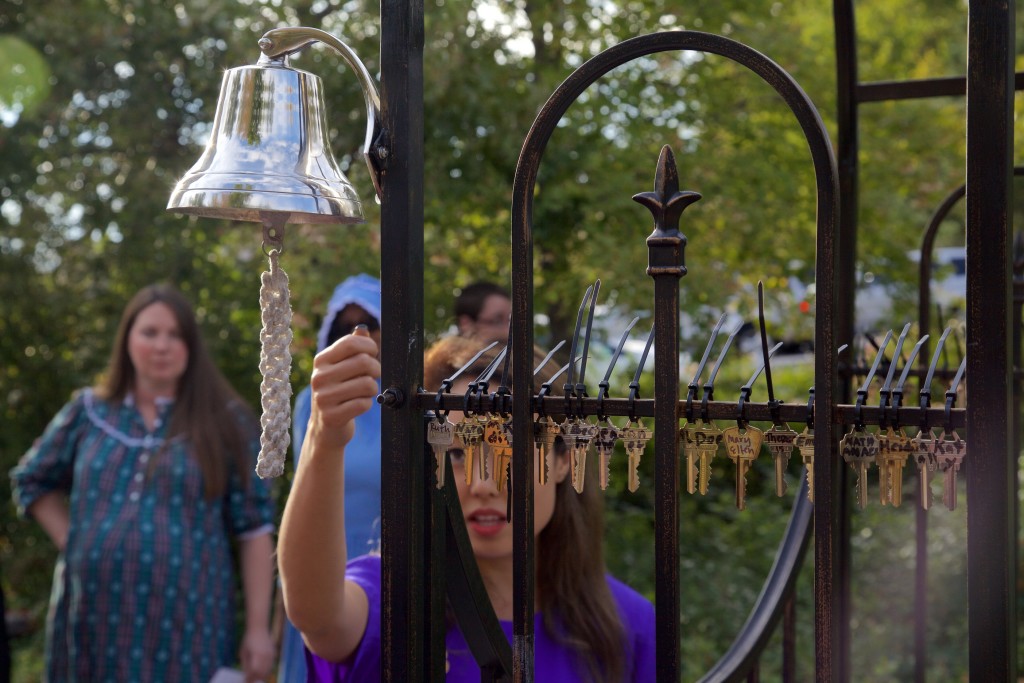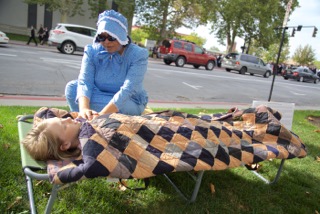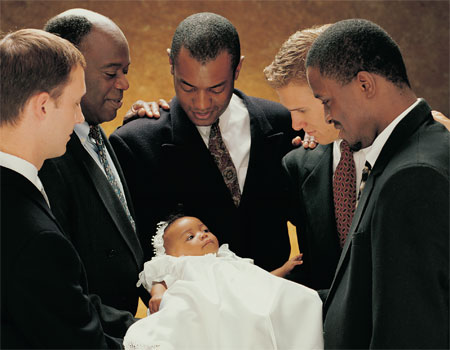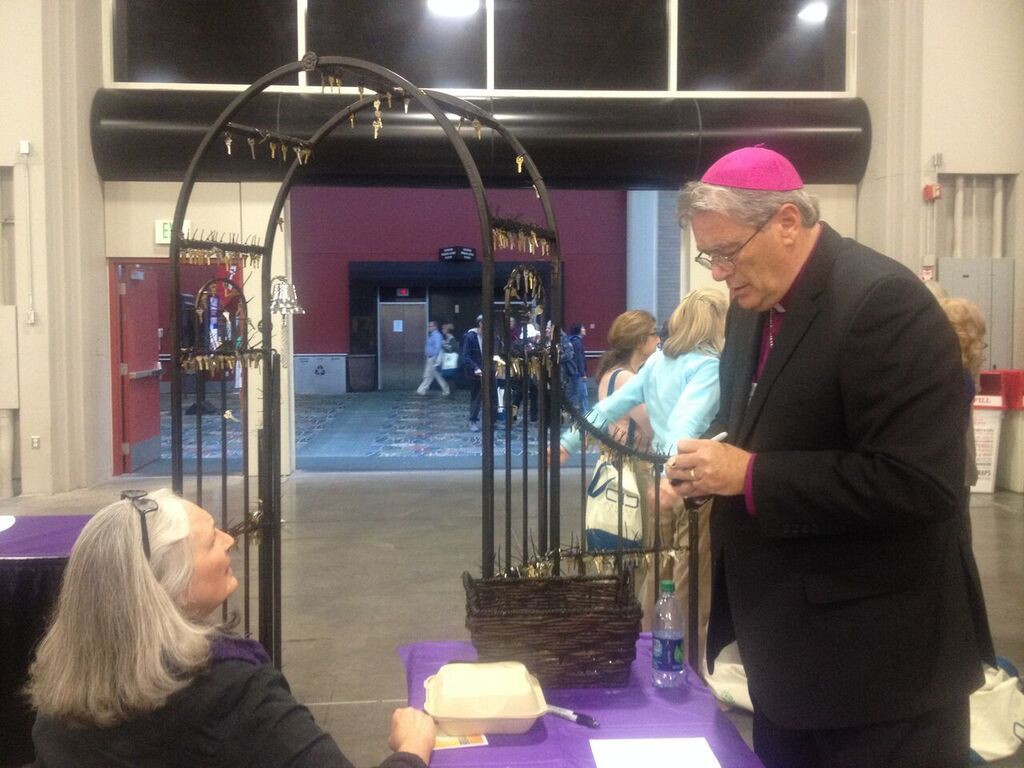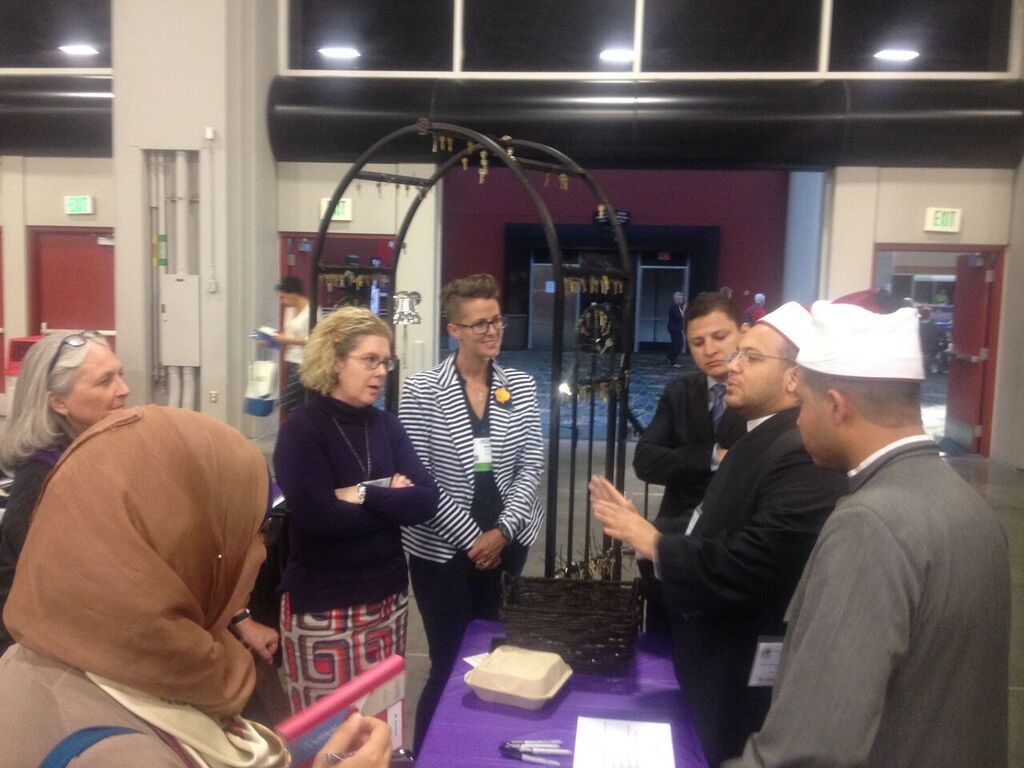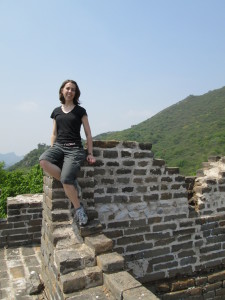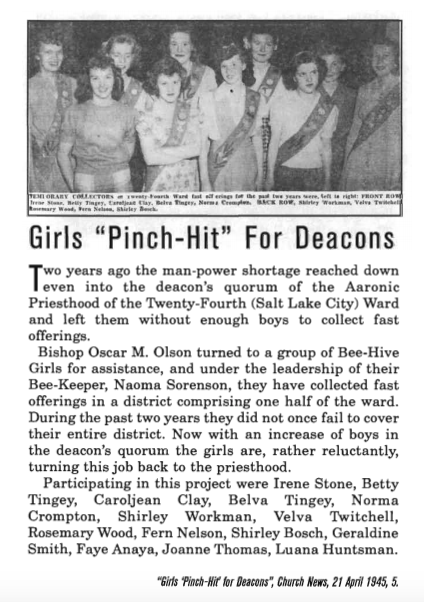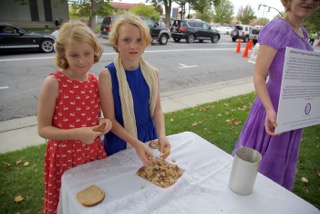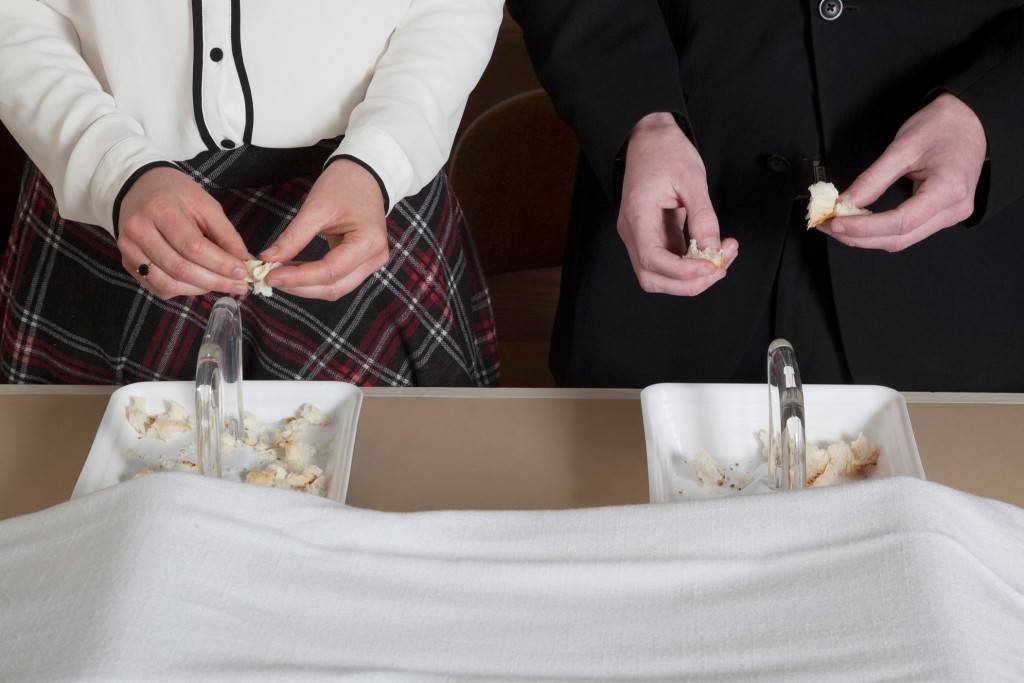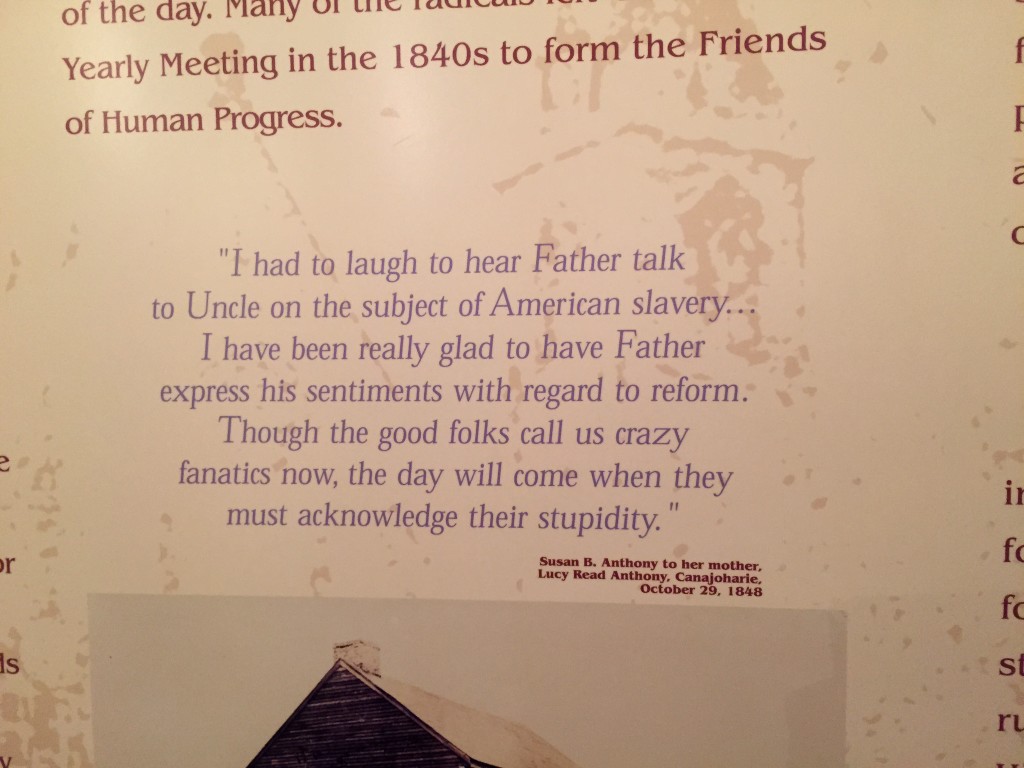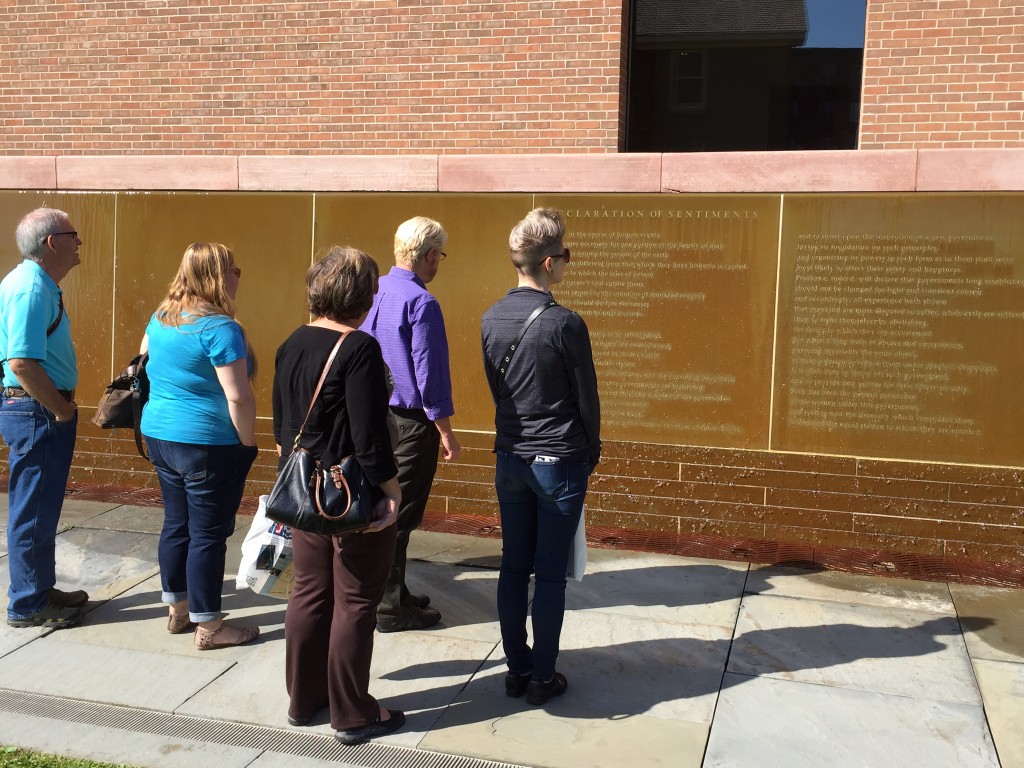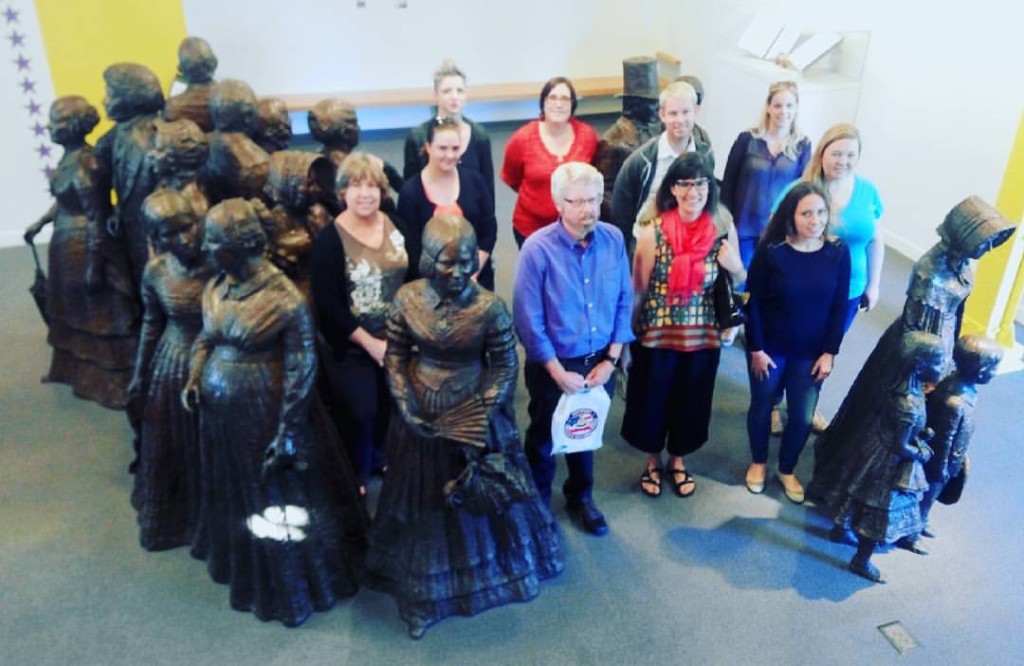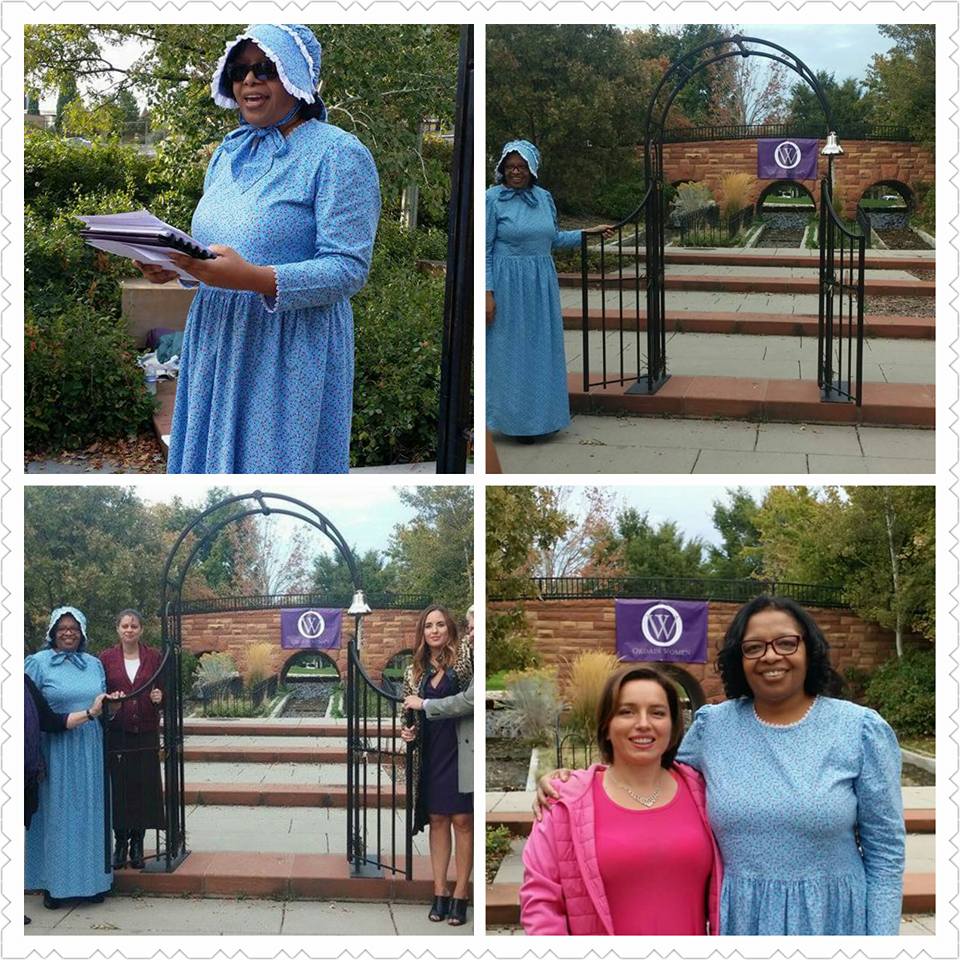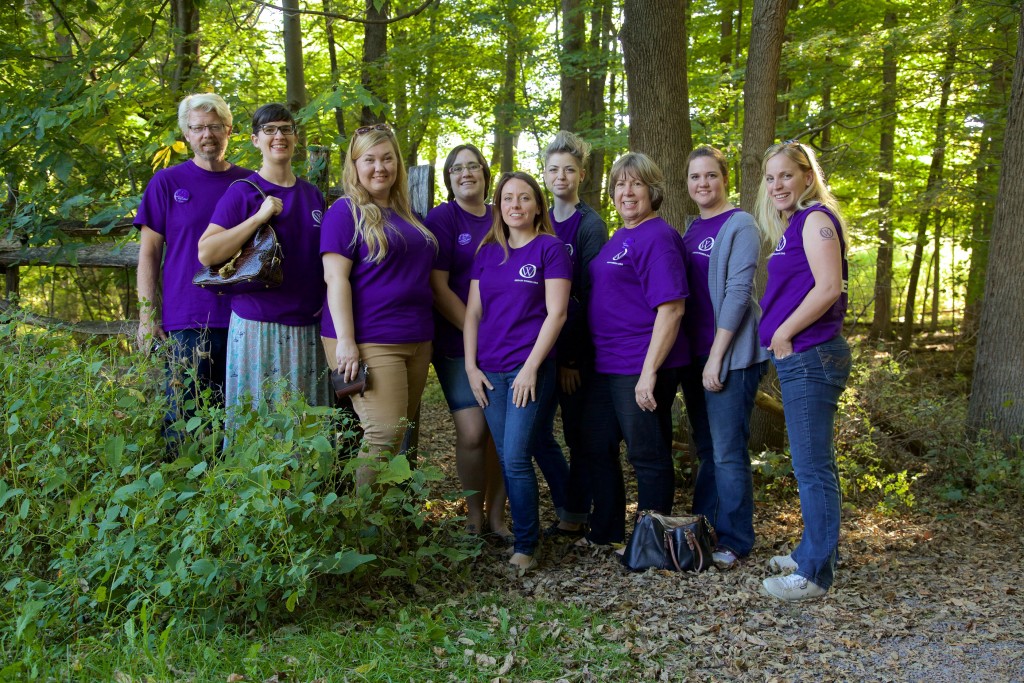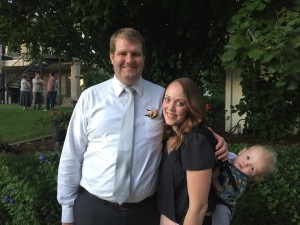Women in the LDS Church.
The recent essays on Heavenly Mother and Women and the Priesthood reveal a much more complicated and nuanced history for women and authority in the Church of Jesus Christ of Latter-day Saints than has previously been offered by the Church. We are pleased to see our leaders engaging with these important topics, but recognize that there are still many unanswered questions. We look forward to future revelations regarding Heavenly Mother and the ordination of women.
We long for more information about our Heavenly Mother and greater gender inclusivity in our worship. She is a divine model we seek to emulate and we hope for a future reunion. While temple blessings promise future access to priesthood for women, we are concerned that barring women from ordination denies them full opportunity to prepare for future responsibilities.
Most importantly, the historical context of priesthood must inform but cannot limit present day conversations. We have seen the continual expansion of priesthood authority and access since the apostles of Jesus Christ began carrying His message forward. That expansion has brought about a great and marvelous work – the growth of the church and spread of the gospel. LDS concepts of priesthood and divinity were decades in development, with definitions, roles, practices, and cosmologies all evolving as the Saints practiced their faith and sought greater knowledge from God. Imagine what could happen were we to extend this power and authority to all women of the church. All we need to do is ask.
Honoring our Past,
Envisioning our Future.
Jane Manning James: Faith Unto Life
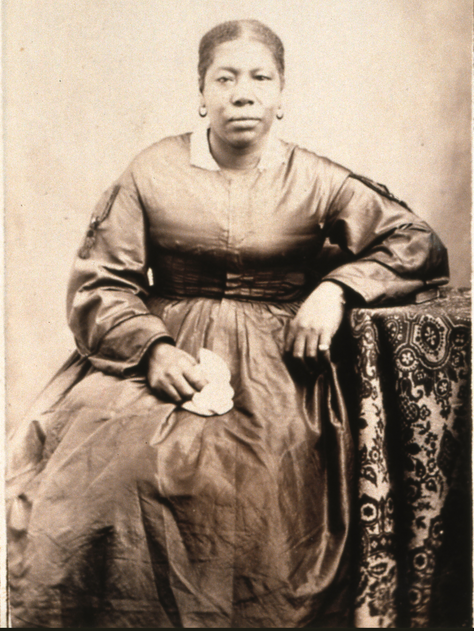
Jane Elizabeth Manning James was an African American Mormon pioneer, beloved member of the Joseph and Emma Smith household, and renowned among the Saints for her facility with gifts of the spirit, such as speaking in tongues and healing.
After her baptism in 1843, Sister James led a group of family members to Nauvoo, Illinois. The group traveled over eight hundred miles of that journey on foot. Sister James wrote, “We walked until our shoes were worn out, and our feet became sore and cracked open and bled until you could see the whole print of our feet with blood on the ground.” This small band of Saints stopped and united in prayer to ask for relief. Their faithful prayers were answered and their feet healed.
This miraculous healing would not be the last on their long trek. Near the end of their journey, thirty miles from Nauvoo, Sister James and her family met with another group of Mormons, among whom was a very sick child. The Elders had previously attempted to heal the child, but had given up hope and expected the child would die. Not knowing this until later, Sister James administered to the child. The child was healed.
Sister James would later leave Nauvoo with the LDS Saints and settle in the Utah territory. Until her death in 1908, she was a vibrant member of the church, active in the Relief Society, a contributor to the Women’s Exponent, and well-known to the Prophets and Apostles. President Joseph F. Smith was a speaker at her funeral. She persistently petitioned for LDS temple blessings throughout the later years of her life. Church doctrine at that time denied full access to such blessings to Black Saints like Jane Manning James. Although Sister James’ repeated requests to receive full temple blessings in her lifetime were refused, she was unfailing in her desire to access them, once asking President Taylor, “[I]s there no blessing for me[?]”
In October 2015 Ordain Women Supporters created a living art display of this inspirational sister just outside of temple square to both honor and represent the change in women’s roles throughout the history of the church as well as to give Sister James a visible role in our history as a faithful, independent woman with the ability to administer and heal. As part of our 2015 art series we have also photographed what this could look like today within Mormonism. As with all images, no ordinances were performed, just modeled as a way to demonstrate our faith. We look forward to more pioneering women being welcomed into new roles and responsibilities within the gospel of Jesus Christ.
Honoring our Past,
Envisioning our Future.
Cite: Coleman, Ronald G. “‘Is There No Blessing for Me?’: Jane Elizabeth Manning James, A Mormon African American Woman,” African American Women Confront the West, ed. by Quintard Taylor and Shirly Ann Wilson Moore. Univeristy of Oklahoma Press: 2003.
James, Jane E. Manning. “My Life Story,” transcribed by Elizabeth J. D. Roundy, Wilford Woodruff Papers. Salt Lake City, Utah: Historical Department, The Church of Jesus Christ of Latter-day Saints.
Pearson, Carol Lynn. Daughters of Light. Bookcraft: 1986.
No Room in the Blessing Circle
I watched her as she proudly carried her baby son into the sanctuary, oblivious to the stares of those who may have been critical of her attire, her hairstyle, or of the fact that the father of her child was nowhere to be seen. She was excited to be a part of the LDS Church, having been baptized in the middle of her pregnancy, and was eager to share her newly minted testimony with her baby son.
I watched her as she stood holding her baby son, with a look of expectancy, clearly waiting to have the circle form around her and her son. Instead, the circle was formed without her and her baby son was taken from her arms by one of the men from the circle while another one of the men stepped away from the circle long enough to escort her to a seat.
I watched the look on her face change from absolute joy to confusion to anguish. I watched her expressive face as her emotions and feelings battled for supremacy. I could see that one part of her wanted to insist on being included in the circle while another part of her wanted to be happy that her baby son was being blessed, even if she was excluded from the circle. I watched as the latter part seemed to win the battle.
I sat and listened to the baby blessing and I thought about how this beautiful baby boy was in a circle that included no one who was related to him. I thought about how, if his biological male parent (even though he was acting more like a sperm donor than a father) walked into the sanctuary at that moment and announced who he was, he would have been able to join in the circle. I thought about how his biological female parent who had carried him for nine months and who had given birth to him was denied that privilege.
I thought about the disconnect between celebrating families while at the same time denying her and her baby son the ability to participate in his blessing as a family. I could come up with no reason that made sense to me for denying either of them that privilege and I wept for her, for her baby son, and for all of my sisters who had been denied the opportunity to participate in their children’s blessings.
I left the sanctuary that day with the look of anguish that was on her face etched in my memory. I serve a God of love and I do not believe that blessing a child without including the mother is an act of love or that it is divinely inspired. Instead, the memory of her face serves to strengthen my conviction that the fight for the ordination of LDS women and for the inclusion of women in all aspects of our faith is divinely inspired.
Honoring our Past,
Envisioning our Future.
Bryndis Roberts, the author of this post, is Ordain Women’s Executive Board Chair-elect. For more of Bryndis’ writing you can also check out the amazing blog; femwoc.com.
The Keys to Equality.
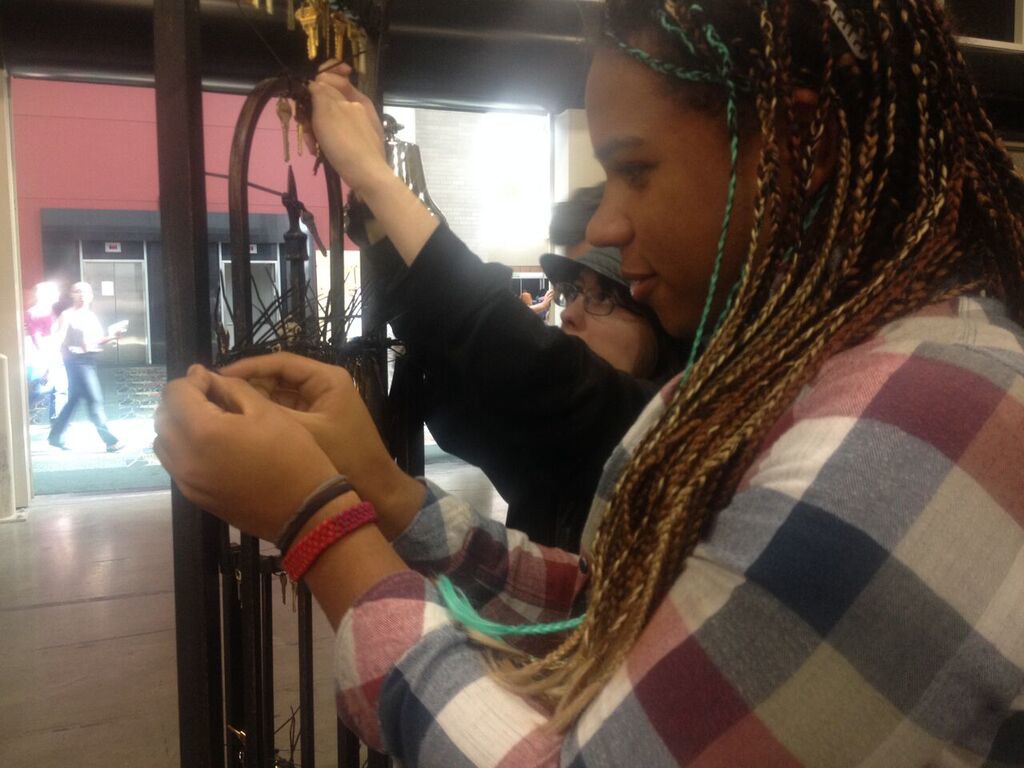 Ordain Women has been displaying the “Keys Sculpture” interactive art project throughout the Parliament of World Religions in Salt Lake City October 15 – 19, 2015 12:15 p.m as people of all religions participate by putting on their own keys and join us in the vision that Women deserve Religious Equality.
Ordain Women has been displaying the “Keys Sculpture” interactive art project throughout the Parliament of World Religions in Salt Lake City October 15 – 19, 2015 12:15 p.m as people of all religions participate by putting on their own keys and join us in the vision that Women deserve Religious Equality.
Join us today at 12:30 MST at the Parliament of World Religions. A panel of two Ordain Women Board members, Lorie Winder Stromberg and Mark Barnes, and the Artist who designed the sculpture, Ginny Huo, will discuss the design and symbolism behind the this interactive sculpture. The panel will also discuss Ordain Women more generally, and answer any questions. The panel presentation will be located near the registration area. Enter through the south doors of the Salt Palace, which is located at 100 South West Temple, Salt Lake City, UT.
Honoring our Past,
Envisioning our Future.
Sunday Spotlight – Rebekah
Rebekah kindly volunteered to be featured as this weeks Sunday Spotlight. She opens up and gives us more insight into who she is and why she supports the ordination of women.
1. What gives you hope for the future?
I think the mere existence of groups who say publicly that women should be ordained is really promising. It’s now a legitimate issue that members have to grapple with.
3. Tell us more about your connection to Mormonism?
I’d say I was born to goodly parents, but I would imagine someone else has already made that joke. 🙂 I was born into a strong church family with pioneer stock, and the church is an integral part of my family and my upbringing. Mormonism was one of the biggest ways we defined ourselves.
4. What was your favorite calling?
I love being a Primary teacher–I’ve done it three times now. I also enjoyed being the ward choir director, though it was terrifying for me.
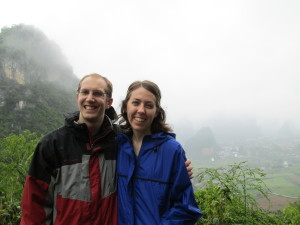
6. What are some examples of gender inequality you see in the church?
How could I not see inequality? Women just don’t have the priesthood, and that means that women don’t have nearly the same amount of voice, power, or presence in the church. This isn’t up for dispute–it just is, and you either come to terms with it or you don’t.
7. Wow did you discover Ordain Women?
I discovered OW on the Feminist Mormon Housewives Facebook group. In other words, I was already indoctrinated into feminism, and OW was an outgrowth of that.
8. What prompted you to put up your profile?
I put up my profile because it felt like the right thing to do. It was being debated all over the internet, and staying silent felt cowardly. This was also a time when I was wondering if there was a place for me at church the way I was or if I should just leave. Posting a profile and putting it on my Facebook page felt authentic, and that week I felt very strongly that God expected me to both stay in the church and to be myself. I was through with going along with what I was supposed to believe–it was time I acted on what I actually believe.
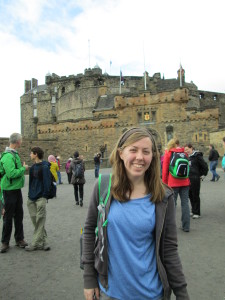
10. Have your feelings grown or changed since submitting your profile?
Not really. The only change is that as time goes by I get more confident and less defensive about it.
Not really. I’d like to think that I’m a living testimony: I am both an active member of the church and a feminist! It can be done! We do exist! However, trying to be that person can also put a lot of pressure on me. Sometimes I do want to just take a break, but I worry that I’ll then be held up as proof that feminism ruins your testimony. It’s a stupid worry, but it’s true.
12. How do you see the perception of OW changing with ward members/family/friends?
I think it’s still very much a minority group, but thankfully people have calmed down about it. It’s not as charged as it was a year ago. I think people have accepted that we’re not going anywhere, and while they may not like us, they’re learning to tolerate us.
Young Women Prepare the Sacrament and Collect Offerings: A Wonderful Privilege
Though the preparation, blessing, and passing of the sacrament have commonly been considered the responsibilities of men and boys ordained to the priesthood, this has not always been the case at various times in LDS history. Into the 1940s in the United States, the duties of preparing the sacrament bread, water, and table were often assigned to young women. Annette Steeneck Huntington of the Emigration Stake recalled that while she was a youth in the 1930s, “[Y]oung girls in [the Mutual Improvement Association] … filled the water cups in the kitchen and placed the bread on the trays. We then prepared the Sacrament table with the cloth and trays on it. It was a wonderful privilege I shall always remember.” In Germany, during World War II, records indicate that women even blessed and passed the sacrament, without censure, in the absence of men who were conscripted into military service.
Additionally, during the war, Mormon women and girls in both Germany and the United States took over assignments to collect tithes and fast offerings. The women in Germany held their collections until they could deliver the funds to the church following the war. During this same period, the Beehive girls of Salt Lake’s Twenty-fourth Ward canvassed their neighborhoods. Bishop Oscar M. Oleson reported, “During the past two years they did not once fail to cover their entire district.” The Church News ran a laudatory article about their honorable service.
In October 2015 Ordain Women Supporters created a living art display of these inspirational sisters just outside of temple square to both honor and represent the change in women’s roles throughout the history of the church. As part of our 2015 art series we have also photographed what this could look like today within Mormonism. As with all images, no ordinances were performed, just modeled as a way to demonstrate our faith. We look forward to more pioneering women being welcomed into new roles and responsibilities within the gospel of Jesus Christ.
Honoring our Past,
Envisioning our Future.
Cite: Nelson, David Conley. Moroni and the Swastika. University of Oklahoma Press: 2015.
Hartley, William G. “From Men to Boys: LDS Aaronic Priesthood Offices, 1829-1996,” Journal of Mormon History Vol. 22, No. 1, 1996.
Photo from JMH article
The Power of Spiritual Equality.
We all see the world from many different perspectives. For me, the perspective that drives my life forward is the spiritual perspective. My experiences over the last two weeks have once again taught me the importance of seeing through spiritual eyes as we strive for equality. On September 21, 2015, several Ordain Women supporters met in New York City to begin the Women’s History Tour. Over the following week we would see the homes of Harriet Tubman, Susan B. Anthony, Elizabeth Cady Stanton, Matilda Joslyn Gage and Joseph Smith. We would see the Wesleyan Methodist Chapel, which gave birth to the Declaration of Sentiments in 1848. We would see how the Quaker belief in the spiritual equality of male and female changed the world. As Ordain Women, we would offered up our own prayers for gender equality in the Sacred Grove. Standing on holy ground, we would read the pleas of nearly two hundred Ordain Women supporters for gender equality in our own Mormon faith. A week later on October 3, 2015, as Ordain Women supporters, we again raised our voices in favor of gender equality as we walked toward Temple Square. Looking back on these moments, each time I felt the spirit moving us toward something greater future.
Standing in Susan B. Anthony’s home in Rochester, NY, I saw these words on the wall describing Quaker beliefs. “They were known for their testimonies against war, their ethic of plainness and belief in the spiritual equality of men and women. Quakers were opposed to the use of liquor and slavery.” Next to this statement was a quote from Susan B. Anthony: “I had to laugh to hear Father talk to Uncle on the subject of American slavery . . . I have been really glad to have Father express his sentiments with regard to reform. Though the good folks call us crazy fanatics now, the day will come when they must acknowledge their stupidity.”
Reading these words, I felt strongly that someday the same will be said of Ordain Women’s belief in spiritual equality. One day within our own religious tradition gender equality will be so thoroughly accepted, that arguments to the contrary will be considered “stupid.” We have seen this before. Prior to 1978, I regularly heard members explain why people of African decent were inferior to others (e.g. the Mark of Cain, or lack of courage in the preexistence). Today, most members see claims of racial inferiority as an unfortunate, and “stupid” part of our past.
On July 19-20, 1848, three hundred men and women met at the Wesleyan Methodist Chapel in Seneca Falls, NY. Many of the participants were also abolitionist, who believed in racial equality, as well as gender equality. They created a document known as the Declaration of Sentiments. The great abolitionist Fredrick Douglas recorded this document and published it to the world. One hundred of the three hundred people present had the courage to sign their names to the Declaration of Sentiments.
In part, these one hundred brave women and men declared: “We hold these truths to be self-evident: that all men and women are created equal; that they are endowed by their Creator with certain inalienable rights; that among these are life, liberty, and the pursuit of happiness . . . “ Many of the men and women at the convention, along with others like Susan B. Anthony, who would follow later, understood that this declaration of spiritual equality was the foundation upon which legal and cultural equality could be built. As long as people believed in the spiritual inferiority of women, we would not be able to build a country that would fully embrace the equality of women in other realms of life.
Of the one hundred people who signed the Declaration of Sentiments, only one, Charlotte Woodward lived to see the passage of the 19th Amendment, which granted women the vote. For the other ninety-nine, their commitment to the spiritual equality of the sexes failed to bear fruit during their lives. For those who consecrated their entire lives to this end, like Elizabeth Cady Stanton and Susan B. Anthony, success was something beyond the limits of their own mortality.
As we walked through the homes of early feminist leaders in upstate New York and listened to the stories of their lives, I could see their lives reflected in the lives of many of the women with whom I work in Ordain Women. I have felt their deep faith in the equality of all God’s children, male and female. I have seen their commitment, as they dedicate weeks, and months, and years to this work of equality. I have also seen their anguish, as they face anger and rejection from their most intimate community. But they continue, because like those of the past, they understand that what they are doing is right.
On September 23, and October 3, 2015, we again raised our voices in support of gender equality. On September 23rd, a dozen Ordain Women supporters stood in the Sacred Grove in Palmyra, NY and one by one recorded our wishes for the future the Church, along with the wishes of almost 200 other supporters. On October 3rd, we walked from City Creek Park to Temple Square in Salt Lake City. This time through the use of living and symbolic art displays, we expressed our conviction that women must be ordained, and must take their place as full equals with their brethren in the church. As Ordain Women, we have faith in the words of Susan B. Anthony: “Failure is Impossible.”
Honoring our Past,
Envisioning our Future.
Mark Barnes, the author of this post, is on Ordain Women’s Executive Board as Male Allies Committee Chair.
The future of Ordain Women
The following speech was given on Saturday, October 3, 2015 to Ordain Women Supporters gathered at City Creek Park in Salt Lake City, UT.
My name is Bryndis Wynette Roberts. I am 58 years old. I am African American. I am a convert. I believe women should be ordained.
My belief is grounded both in scripture and pragmatism. From a scriptural standpoint, I believe that the powerful words found in 2 Nephi 26:33 that God invites all and denies none and that all are alike unto God lead to the logical conclusion that God loves all of us equally and that all of God’s children should have the ability to serve in all aspects of God’s church and God’s kingdom. For that eventuality to occur for Latter-day Saint women, we must be ordained. From a practical standpoint, I feel strongly (and my experience in a ward outside Mormondom shows me) that it is not possible to do all that God has commanded us to do when we automatically exclude 50% of God’s children from full participation.
Before I go any further, let me digress a moment and explain what I mean when I say “God.” I do not limit God by our earthly understandings of gender or color or any other human characteristic. When I talk about God, I am talking about Heavenly Father, Heavenly Mother, Jesus Christ, and the Holy Spirit acting in concert to bless us, to keep us, to love us, to comfort us, to encourage us.
Now that we understand my terminology, I would like to speak about three points – 1) our history as LDS women; 2) what this action today means; and 3) my commitment to Ordain Women and its future.
I do not claim to be an authority on the history of LDS women. But, I do feel that I can state, without fear of contradiction, that our history shows that in the past we had AND WERE ALLOWED TO EXERCISE more power and more authority than we are allowed to exercise now.
Let me repeat that statement: In the past, we, as women had and were allowed to exercise more spiritual power and authority than we are allowed to exercise now.
The difference between us and our foremothers and forerunners is not that we are any less in God’s eyes than we were then or that we have any less spiritual power than we had then. The difference is that the institutional Church, through years of retrenchment and correlation, has told us that we cannot exercise that power. The necessity that LDS women be ordained grows out of the recognition that for us to (once again) exercise our power and authority and for us to do so at the same level as our brothers, we must be ordained.
Our action today builds on our past and reaches for our future. It has a two-fold purpose – 1) to honor our rich and glorious past and 2) to envision our bright and powerful future.
Because the institutional Church does not teach or even speak about the rich and glorious past of LDS women, part of our job as supporters of Ordain Women is to help educate LDS members about that past. In doing so, we show them that we are not advocating some farfetched, outlandish notions. We also help to dispel their concerns that equality in faith and the ordination of women will lead the Church into some dark, unknown place. Furthermore, because the institutional Church refuses to discuss the ordination of women, the other part of our job is to, literally and figuratively, show LDS members and help them to envision what our beloved Church will look like when all of God’s children have equal access to exercising the power of the priesthood.
Note that I keep emphasizing all of God’s children. It is vitally important that in celebrating and honoring our past that we do not gloss over any of the ugly, exclusionary practices of the past. We must acknowledge that in many of the historical references to women exercising spiritual power and authority, there was a direct link between the exercise of that power and authority and being endowed. Prior to 1978, women who looked like me were not able to exercise the power and authority that our white sisters did. We must acknowledge that fact and we must recognize that merely saying that our vision for the future includes ALL women is not enough. In fact, it is woefully insufficient. We must make sure that every word we say and every action we take is intentionally inclusive, not just on paper, but in reality.
Our action today, which includes women of all races, colors, ages, ethnicities, national origins, ability, sexual orientations, socio-economic status, and educational levels acting in person and by proxy, echoes our commitment to being intentionally inclusive and working to insure that when we reach our goal, we will not look around and see that we have left someone behind.
The members of the Ordain Women Executive Board have shown their support of me by unanimously electing me to be Chair-elect and in April 2016, I will become Chair. I am honored and humbled that my fellow Board members have selected me for this task. Some of you either do not me or you know me only through Facebook and other social media. I give you my promise that I am committed to the belief that LDS women should be ordained and I will bring the full force of my personality to working for that glorious goal. I know that the walls that stand in the way of the ordination of women will not come down and that the gates that bar the way to full participation will not swing open without hard work and struggle on our part. I urge us not to grow weary – not to lose heart – not to be discouraged. Our course is right. Our cause is just. We will prevail. The walls will come down. The gates will swing open. We will receive our keys. I name it and claim it in the name of Jesus Christ. Amen.
Honoring our Past,
Envision our Future.
Bryndis Roberts, the author of this post, is currently on Ordain Women’s Executive Board as Intersectionality Chair.
Ordain Women Envision the Future of LDS Women in The Sacred Grove
On Wednesday, September 23rd, 2015 a group of Ordain Women met in the Sacred Grove in Palmyra, NY. As the Ordain Women theme for this year has been to, “Honor our Past and Envision our Future,” we embarked on a women’s history tour to learn about and honor a part of our history; but we also wanted to envision our future, and specifically the future of our church.
In the Sacred Grove, we shared what our vision and hopes were for the future of our church. We also shared 160 other individuals’ hopes for the future, who wanted to participate by proxy, and video-recorded these hopes for the future to create an electronic time capsule. You will see each of us reading our own hopes, and then the hopes of another and placing them in a symbolic time capsule.
It is our hope and prayer that we will see these hopes come to fruition, and we believe that women’s ordination is a significant step towards moving beyond the inequities in our church. It is also our hope and prayer that one day all can a can fully partake as it says in 2 Nephi 26:33:
“…he inviteth them all to come unto him and partake of his goodness; and he denieth none that come unto him, black and white, bond and free, male and female; all are alike unto God.”
You can view a video recording of the electronic time capsule, listen to a podcast of this action or read the wishes shared in the Sacred Grove below.
To add your voice to ours in future actions, please consider submitting a profile and/or donating to Ordain Women.
I look forward to the day when women are seen as an asset and not a liability for growing branches.
Elizabeth, Bailey CO
I hope for a day when church leaders realize that half the young men does not equal “half the youth of the church” and to a day when the prophets and apostles don’t believe that God approved of civil laws, through most of human history, oppressing nearly everyone but rich cis straight white men.
Catherine, Meridian ID
I envision a day when no ambitious young woman will ever again hear a church authority tell her she is unworthy.
Hart, Claremont CA
My wish: That my single mom could give me a blessing.
Anya, Mexico
I look forward to the day when Heavenly Mother is elevated to the level of full divine status in the LDS Church and we are encouraged to pray to Her alongside Heavenly Father.
Michelle, North Carolina
My wish is that one day I will raise my hand and sustain a woman as Prophet Seer and Revelator in this church.
Clint, St. Louis, Missouri
A day when the full expression of our spiritual gifts is encouraged and not forbidden as inappropriate.
Tresa Cameron Park, CA
My hope for the future of the church is for gender roles to no longer be taught. But rather, women (and men) can be encouraged to make life choices based on their individual interests & strengths, and be able to contribute in diverse ways in church service.
Christy, New York, NY
I hope for a day when mothers and fathers can reclaim the ability to bless their children together by the laying on of hands with unified Priesthood authority. Jeremy, Alexandria, VA
I wish for a day when women may administer for their children, friends, and family in need and not have to wait for a man to be present.
Ashley Panama City, FL
My wish is that one day daughters can lay their hands on the heads of their parents when they are set apart as senior missionaries.
Rebecca, North Salt Lake, UT
I look forward to the day that women are ordained and my daughter is valued for more than her uterus.
Krystal, Drayton Valley, Alberta, Canada
I pray for the day when our religion moves to a higher moral plain by fully embracing gender equality and ordaining women.
Mark, Woods Cross, UT
I look forward to the day when women are members of the Quorum of the 12.
Ed, Atlanta, GA
I pray for the day when all of God’s children can use all of their God-given gifts and talents in connection with the work we have been commissioned to do. Bryndis, Atlanta, GA
I hope for a day that women in the church will have the power to heal, bless and comfort others through God’s power on earth.
Holly, Albuquerque, NM
I look forward to a time when we will all know Heavenly Mother as much as we now know and love our Heavenly Father.
Holly, Albuquerque, NM
I look forward to a day when women will be involved in not just teaching doctrine but creating it.
Joanna, Atlanta, GA
I hope someday members of the church will look back and wonder why women were ever not ordained because it seems so intuitive that the priesthood should be shared equally.
Jenny, Pocatello, ID
I wish to serve alongside my brothers in equality AND equity, joining our individual talents, strengths and abilities to bless each other and those around us. I wish for my responsibilities within the church not to be limited by the anatomy with which I was born.
Chantri
I look forward to the day when blessings given by women in the LDS Church can be done in the open and not behind closed doors in hushed voices.
I am hopeful for the time when we will see women standing strong in their history (or herstory, as it could be); claiming their rightful place that was restored years ago by someone we acknowledge as the prophet of the restoration and leaving behind a legacy for the world to marvel.
Rachel, Holt, MI
My hope and prayer is to see women in every single level of leadership.
Jess, UT
I wish to see the day when my daughters’ contributions to the church are products of their skills and the congregation’s needs, not their presented gender.
Thom, Belmont, MA
I hope that one day women will be valued for more than their marriageability and fertility.
Maggie, Washington, DC
My wish is to see women claim their spiritual authority and divine power, standing next to their brothers instead of behind them.
Rachael, Colorado Springs, CO
I envision prayers to Heavenly Mother and every woman empowered to serve and to lead in whatever way she feels so called.
Lauren
I look forward to the day when women and men are encouraged to pray in Heavenly Father and Heavenly Mother’s name: where women are not punished just for mentioning her name: whether it be in private with her husband or public: where men and women can serve God in his and her name: where sons and daughters can lay hands on each others heads without fear of reproach.
Heidi, Seattle, Washington
I wish to see the day when I can find a leader with a story like mine to inspire me & represent my viewpoint with experience. I wish to hear the voice of a dear Sister blessing me about things I know she understands and feels.
Stephanie
That one day women can lead and minister to congregations, and not just children or other women.
Katie, Denver, CO
The day when I can anoint and bless someone I visit teach.
Chris, Northumberland County, VA
I look forward to the day when my nieces can BE what I was only allowed to FEEL I was.
Makenzie, Boston, MA
Some day when our leaders are women, our revelations will flow from the divine feminine.
Tom, Mesa, AZ
I wish for everyone born a seat at the table.
Donna, Provo, UT
I look forward to seeing my sister baptize people on her mission.
Kristin
I pray for a day when the priesthood will be given to members based on their desire and worthiness and not their body parts.
Emily
I wish that women’s eternal and mortal potential were recognized to be as powerful as men’s potential.
Rebekah, Orem, UT
I look forward to the day when the church will be led by a living Prophetess. Mary, Orem, UT
I wish to see men and women of color well-represented in the leadership of the church, with greatly expanded leadership roles for women. Then we win.
Nancy, St. George, UT
I anticipate the day when my Mormon friends and family can serve God in every way, to the fullest extent of their own desires no matter their gender biology or orientation.
Carson, Maple Valley, Washington
I hope that one day my sister, cousin, and best friend will join me in blessing my children.
Eva, San Francisco, CA
I look forward to the day when women and people of color are adequately represented in church leadership at all levels.
Holli, Aurora, Colorado
I look forward to the day when women will be as equal as many of them feel. I look forward to the day that a woman giving her child or friend a blessing won’t raise eyebrows. I am hopeful for a day when believers will listen to a female prophet carefully and faithfully.
Kari, Missouri City, TX
My wish is that one day, the LDS church and the wider LDS culture will embrace full equality for women.
Chris, UK
I wish for a future when it is so common to have both male and female priesthood leaders that it is unremarkable. That my nieces grow up hoping to lead as priests, high counselors, bishops, stake or mission presidents, Q12, or prophets based upon their spiritual gifts and inclinations rather than their body parts.
Rebekah, Portland, OR
I look forward to the day when my wife and daughters can be my ecclesiastical leaders.
Rolf, Athens, GA
I look forward to the day when the importance of gender within our religious tradition will be primarily felt when its leaders encourage us to seek Mother in Heaven.
Emily, Provo, UT
I hope for a day when the temple sealing ceremony includes wording for *both* individuals to give themselves to their partners equally.
Eve, Tempe, AZ
“Perfect love casteth out fear,” so the Good Book says. I wish for the day in which love has banished fear from the LDS church.
David
The day when one of the witnesses to a sealing can be female, as well as the sealer.
Chris, Northcumberland, VA
I want to see young women encouraged to go on missions at the age of 18, equal in every way to the young men.
Lisa, Provo, UT
I can’t wait for more than 9 women to have access to the Church Handbook of Instructions. Having access only through the eyes of a man, if he sees fit to tell me, leaves me powerless to know my own doctrinal policies.
Lisa, Provo, UT
I look forward to representational leadership at General Conference.
Lisa, Provo, UT
I want young women in the church to grow up with a certain knowledge that they are just as valued by the church as their male counterparts. I want church leaders to devote as much time, energy, and money to the young women as they do to the young men. I want young women to grow up being taught that the roles of wife and mother are only two possible parts of a much larger self-identity. I want my sons to see my husband and I as equal partners in all things, including spiritual authority.
Cally, American Fork, UT
I wish for a day when a prophetess will reveal further doctrine about the eternal destiny of women and about Our Mother. I also pray for a day when the endowment ceremony is equally as inspiring, ennobling, and uplifting for women as it is for men, when the philosophy of men that is patriarchy is discarded and we can all be equals in Our Parents house.
Abigayle, Yakima, Washington
I wish for a day when I don’t have to worry that my daughter will be emotionally and psychologically damaged by attending church.
Joseph, Tucson, AZ
My wish is for women in all levels in leadership and for Young Women to be taught to find value outside of motherhood as well as within.
Candace, Irmo, South Carolina
I hope that someday soon all people will be represented in every level of leadership.
Shannon, Tucson, Arizona
1) I wish for the Ordination of Women in the Latter-day Saint (Brighamite) tradition to open the windows of heaven in such a way that spiritual light can shine on the fact that male and female exist *in each of us*;
2) I wish for the Ordination of Women in the Latter-day Saint (Brighamite) tradition to remind us that our deeply entrenched beliefs for social norms and gender are constructed by the spirit of our times, and that anything “essential” about gender roles requires the utmost humility and caution in approaching;
3) I wish for the Ordination of Women in the Latter-day Saint (Brighamite) tradition to shift the balance of decision-making on matters of policy and doctrine toward humanized, empathetic wisdom considerations in the spirit of Eve, and move the culture away from the obedience, authority-reliant spirit of Adam;
4) I wish for the Ordination of Women in the Latter-day Saint (Brighamite) tradition to usher in the influence of a Heavenly Mother in the worship and discourse of the LDS people;
5) I wish for the Ordination of Women in the Latter-day Saint (Brighamite) tradition to remove all barriers of gender-based discrimination from ordinances, and executive and pastoral callings.
Michael, Ithaca, NY
My hope is that my sisters and friends in the LDS church will soon be able to have their proper seat at the table and the ability to bless lives with ordained ministry that enriches their church and the world.
Brittany, Saratoga Springs, Utah
I have a dream of 100% inclusion, that will not be stopped due to arguments like gender-mixed presidencies automatically means that people will break their marital vows. In short term, well, any small steps ahead are welcome…maybe to allow women in the ruling bodies (on all levels) proportionally.
Wiktoria
When women are ordained, we will not be limited to motherhood. Motherhood is great for some, but not for everybody, and for those who can’t have it or don’t want it, there is no room for us in the church. Ordination would change that.
Sarah, Cleveland, OH
Women running the Correlation Committee and authorizing churchwide bulletin: We are now a resource library only, accepting submissions.
Andrea
I hope to see the first female apostle of our dispensation speak in General Conference.
April, Salt Lake City, UT
My vision for the future is that the scripture that “all are alike unto God”, both “male and female” is understood to mean that all can serve God in whatever capacity best suits their talents, gifts, and abilities, regardless of sex/gender.
Spencer, San Antonio, TX
I look forward to the day when the LDS church does not use the term “preside” for one gender over another and in the next sentence try to pass it as equality. They will acknowledge equality cannot entail the use of “preside”. I envision women healing their children, participating in all the rituals like baby blessings and baptisms, leading a congregation to name a few.
Anissa
I wish for the return of Deborah the Prophetess. I wish for the church to recognize that women as well as men can receive revelation for Israel.
Julia, Heidelberg
I hope that when women hold the priesthood they will use that power fairly and honestly without resorting to exclusion and excommunication to control others.
Nancy, Vienna, Virginia
My prayer is for all of our daughters and sons to build and race at a pine wood derby. To lead the next generation of future female Engineers and builders and STEM leaders.
Kay, Los Angeles, CA
I hope for the day that gender is not the deciding factor of what a person is capable of or what their desires should be. All people are accepted as they are, and are told their potential and capabilities are limitless.
Rachel, Las Vegas, NV
It is my prayer that one day it will be culturally and institutionally recognized that our Heavenly Parents speak to Their daughters as intimately, and work through Their daughters as often, as They do Their sons.
Leah Marie, Buena Vista, VA
That one day, my children won’t have to ask why both of their parents can’t be involved in their ordinances.
Christa, Monroe, NC
I wish for more healthy relationships between spouses as they minister, as equals, in their homes.
Greta, Norman, OK
I hope for a day when the Young Women and their leaders really know what Divine Nature means!
Greta, Norman, OK
I hope for the day that the LDS Church takes its place beside the great religions that fight for equality, love, and inclusion.
Jamie, Greenbelt, MD
I wish to see the day when men and women are treated equally in the church, so that my granddaughters have the same opportunities as my grandsons.
Ann, Hurricane, Utah
I look forward to the day when everyone who feels the call to serve is ordained to the work, and where none are ordained who do not desire the opportunity.
I look forward to the day when no people need to ask a prophet if God loves them as much as their brothers and sisters.
I look forward to the day when no one needs to preach from the pulpit about the importance of women because their importance will be glaringly obvious.
Laura
I look forward to the day that parents won’t have to make the choice of whether to raise their daughters EITHER with full equality with their male peers OR within the church.
Chad, Draper, Utah
I look forward to the day when gender and marital status are irrelevant as criteria for determining eligibility for any office at any level of church leadership.
Paul, Arlington, VA
I look forward to the day when the church teaches that one’s role(s) in life are determined primarily by self-discovery, aptitude, and choice, rather than by gender categories.
Paul, Arlington, VA
I look forward to a day that I could feel good raising my children in the church and know that it would never be a place where they would face discrimination or marginalization because of their gender, race, or sexual orientation.
Lara, Laramie, WY
I look forward to women being regarded as spiritual leaders and sustained as prophets, seers and revelators.
Sara, San Diego, CA
My wish is that each member of our church, regardless of gender, race or sexual orientation, can feel that they can fully use their spiritual power to the building of Zion and prepare for the coming of our Lord Jesus Christ.
Esther, Quebec, Canada
I would appreciate having the only true church tell the truth about its history by opening its history department to historians, and treat its members with equality.
Bob, St. George, UT
Equal access to God and His love reflected in Church leadership, Ordinances, Preisthood, and cultural attitudes toward one another.
Todd, Pittsburgh, PA
I’d love my wife to be able to give me a blessing.
Nate, Gold Coast, Australia
I hope for the Church to lead the fight against violence against women.
Andrew, Salt Lake City, UT
I long for the day when I can stand side by side with my wife and bless our two boys together.
Keith, Roanoke, VA
I hope for a day when the LDS church can move on from the sexism, racism, and classism it’s mired in now and focus on serving–temporally and spiritually–those in need and being an organization that truly represents Christ or all things good. Anja, Boston, MA
I hope for a Church that focuses on the grace of Christ, values all individuals, and no longer values compliance to arbitrary rules.
Jason, Coeur d’alene, ID
I’m encouraged by the work that’s happening around the world to make things more fair for women, and that their voices are heard and respected. I hope that soon, this social movement will be reflected in the LDS church, and it can be a welcoming place for women of all walks and opinions.
Kristen, Henderson, NV
My wish is for the temple to be completely reformed from the ground up. I wish for the Church to become a force for good in women’s lives rather than the drag on them that it is; especially in Utah where the Church’s dominant presence pervades all aspects of women’s lives, even those who are not affiliated with the Church. It makes women underclass citizens in the whole state.
Laura, UT
I wish for a church that values the contributions of every member without regard for gender in assigning tasks; that women as well as men can feel and exercise great spiritual power. I also wish for a church for which I do not need to make excuses to my teenage children who are more loving and understanding than their leaders.
Lori, Columbus, MS
” I have a dream “: that one day the sisters hold the priesthood with their brothers in order to bless and better serve their next and so become more powerful instruments, without fear or obstacles, in the hands of God.
France, Montreal
I look forward to a day when I see the women on the stand quoted and admired and looked up to as examples by men and women of the church, alike.
Julia, Salt Lake City, UT
I wish to someday look at the stand of leaders at general conference and see a diverse group of people consisting of equal men and women and all nationalities.
Taylee, Chicago, IL
I wish that women did not feel useless and used up at 45 when their oldest child leaves the house. I wish that they did not try and “pray it away” when they had the urge to get a second career or go back to school. I wish they could feel comfortable finding meaningful and all-encompassing work instead of waiting by the phone hoping that their grandchildren will need them. I wish that women did not feel that they have to defer to their teenage sons.
Jennifer
I wish I could hold hold my twins in church for their naming and blessing ceremony next year.
Kristy, Athens, GA
I wish women could heal and ease sorrow and pain by laying on of hands.
Graciela, Porto, Alegre, RS, Brazil
My wish is that no young woman will say “I have to change who I am to be what the church wants me to be” ever again.
Rachel, Ames, IA
I hope for girls to grow up envisioning their future selves without limits based on what they *should* do because they happen to be female. I don’t want my daughter to circumscribe her dreams and ambitions so that she better fits in a box someone else made.
Danielle, Boston, MA
I envision individuals taking principles from their faith tradition that they find helpful and edifying – and applying them in ways that honor their personal, marital and family authority (regardless of gender, sexual orientation, relational status, etc.). And that they will be honored, respected and welcomed by their faith community for doing so. That this will be seen as the pinnacle of spiritual growth, instead of the current tide of obedience and compliance. That ecclesiastical authority trumping personal authority would be deemed abuse of priesthood power.
Natasha, Wichita, KS
I look forward to a day where women can gain self esteem from the responsibilities they are given in the church. Where their value is wider than the production of their uteri. When men look to women for authority rather than advocating for the benevolent use of the patriarchy. In short, a day when separate is no longer considered equal.
Alexandra, Salt Lake City, UT
I wish for more representation to be a catalyst in preventing violence against women. I wish that women will feel powerful both institutionally in the church as well as individually in their lives. I wish for the violent acts against women within the Mormon community to cease to exist and for women to stand up for themselves and claim their own power. I wish that spiritual abuse will cease to exist because there is not a power differential between genders.
Didi, Chicago, IL
I hope for less pain, for fewer women jamming themselves into boxes they don’t fit into, for fewer clipped wings and fewer silenced voices.
Liz, Eagle Point, OR
I hope that someday the church as an organization will make institutional repentance a practice: admit to the mistakes it has made in the past, make whatever restitution is possible, and take steps to systemically reduce the chances of similar mistakes in the future.
Tom, Boston, MA
I look forward to the day when women are no longer considered “appendages” to the priesthood
Paul, Arlington, VA
I wish for the day when we worship a complete God, when Heavenly Mother is integrated into all our doctrine and practices so that the powerful presence of the Divine Feminine changes the way women are seen. Our power and authority and spirituality will be honored. I wish for the day when the temple ceremonies aren’t comprised of antiquated gender roles, but rather are worshipful reminders of everyone’s individual divinity and women aren’t subjugated in these holy practices. I wish for the day when my daughter is valued as much as my son in the faith we follow.
Meredith
I look forward, in our day of the gospel’s fullness, to the day that church leaders observe scripture in its fullness, quite chiefly women exercising the priesthood. Rhett, Bountiful, Utah
I look forward to the day when a man has to stand before a council of twelve women to confess his sins in order to receive forgiveness.
Jennifer, Murfreesboro, TN
I look forward to the day when marginalizing people based on their gender will be a relic of the past.
Nigel
I look forward to the day when women are treated as equals in this church, spiritually, and temporally. I want women to have the priesthood is what I’m saying.
Hannah, Cleveland, OH
I look forward to the day when the church fulfills Christ’s teachings that we must love all people like ourselves, not in spite of their faults, but because of their humanity, and that we treat all people as equals in the sight of God, regardless of race, creed, gender, nationality, gender, sexuality or sexual orientation. When we do this, then all people will be able to magnify the talents they were given, rather than be forced to bury those talents in the ground.
Charity
I look forward to a day when all women will have a priesthood and will use it for goodness of all.
Alice, Czech Republic
I look forward to a day when a mother doesn’t have to choose between her church and her daughter.
Amanda, San Diego, CA
I look forward to a day when each member is valued for their individual gifts and not their gender. When roles are not prescribed based on sex. When women can be fully included in worship, leadership, and glorying in the goodness of God. I look forward to the day that I can return to the fold.
Katie, Salt Lake City, Utah
I look forward to the day when my daughter and sons serve side by side in the Priesthood. I hope for a day when their gifts, talents, and leadership opportunities are not limited or proscribed by gender. I look forward to seeing them circle my grandchildren with their spouses to bless babies. I long for the day when I can fully serve my Heavenly Parents without restrictions due to biology.
Mindy, Iowa City, IA
I look forward to the day when women and men are treated equally in the church and without attention to their gender. This will be a day when I feel safe and I know it is a place I can take my children without fearing for their wellbeing. It will also be a day when I do not feel happy and at peace again.
Suzy, Christchurch, New Zealand
I look to a day when the culture of the church mirrors the post-patriarchal society I was brought up in, one where there is no longer the need to discuss whether one person has superiority over another, equality is unanimously acknowledged, and justice is everyone’s goal. A world where women and men are respected by each other and no one is threatened or belittled for their gender, their sex or their orientation. Where we are so far past those questions of equality that new and more interesting discussions can happen, without being hampered by questions of superiority, imbalance or bigotry.
Chelsea
I look forward to how I hope the church will transform once women have a full and equal seat at the table–I long for an organization that embraces peace, justice, and inclusion, instead of nationalism, corporatism, and orthodoxy.
Natalie, Seattle, WA
For most of my life, the only women that were my leaders were in primary and most of my leaders in church were men. Although I did learn some important things from those men, I wish there were more women in leadership positions above me so that I could have more opportunities to learn from women and have a more balanced perspective.
Isaac
I hope to see one day a woman of color sick, poor and lesbian be part of the twelve apostles.
Flora, Toulouse, France
I want the girls and young women I know and love in the church to grow up with strong female role models and leaders. I want them to imagine themselves as the prophet someday, not just the little boys in the primary class next to them.
Abby, UT
I want a Mormonism that accepts it’s history and the wealth of culture it possesses, instead of trading it for a one size fits all, watered down rhetoric that ostracizes its members and empowers those with power, wealth, and privilege.
Bryan, Salt Lake City, UT
My wish is that one day the church will put more energy into promoting women’s equality than it now puts into justifying its sexism.
Nadine, UT
As it stands, women are discriminated against organizationally, and men are taught the narrative that they are spiritually inferior to women and given the priesthood as way to even the score. My wish is that both spiritual and organizational equality can be had by men and women in the Church and all will be encouraged equally to reach their full spiritual potential.
Natasha, Pearl City, Hawaii
I am looking forward to a day when a woman’s word counts as scripture as often as a mans word. A day when fatherhood is considered as important as motherhood. A day when no girl or woman believes she has to choose self-realisation or family but is encouraged to find her unique path, not a “one size fits all-path”. A day when women do not have to raise their voices to be heard. A day when sexism in ordinances has been purged out. A good day.
Marion, Namsos, Norway
My hope is for a day when the historically oppressed are granted equal power and authority–where women, POC, LGBTQ, differently-abled, etc. are treated equitably and where those in power bring themselves low and raise up those who have historically been put down–where the first shall be the last and the last shall be the first.
Amy, Canada
My hope is that my church will finally look and act and feel like the church of Jesus Christ. With equal opportunity to serve and love for all.
Debra, Ogden, UT
I look forward to the day when the church reflects my values of equality.
Didi, Kaysville, UT
One of Mormonism’s most intellectually and spiritually compelling teachings is the belief that God shares power and spiritual authority with us—that God’s desire is our empowerment. The exclusion of women from priesthood ordination is incompatible with this foundational belief. Further, to deny women access to decision-making authority in any community–religious or otherwise–opens up a space for the more extreme forms of discrimination and abuse that millions of women in the world endure.
Mormonism also teaches that our essential selves are uncreated. As such, we are free moral agents responsible for our choice either to perpetuate gender inequity through silence and inaction or to embrace a moral activism that requires us to work for justice and equality. I look forward to a day when the equality we seek in our secular lives is also a reality in our spiritual communities.
Lorie Winder Stromberg, Los Angeles, CA
I look forward to a day when I can give my husband a priesthood blessing when he is sick. I also look forward to a day when my nieces and nephews can name as many women general authorities as men.
Christiane, New York, NY
This is the future I envision and look forward to, and I believe it will not fully come to fruition until women are ordained. I look forward to the day when the Divine Feminine is just as sacred as the Divine Masculine is now. When the individual gifts women have are celebrated above the pedestal and gilded cage. Where men and women have equal opportunities and voice.
M’Lisa, Ogden, UT, USA
I look forward to the day when men can be nurturers too; when a man is in the nursery and a woman in the bishopric.
Jason, Irvine, CA
I look forward to a time when the church is no longer in denial about it’s sexism. I’d love for them to acknowledge it as they’ve acknowledged their racism with regard to the priesthood.
Holly, Norwalk, CT
I image a time where gender is a non-issue. I dream of a day when the words “male” and “female” aren’t even brought up, because they aren’t a consideration in who our Heavenly Parents want as a bishop, and because being one or the other doesn’t define how great a parent you’ll be. I desperately hope for a future world where the fullness of ‘all alike unto God’ is realized. I dream of a day when gender isn’t mentioned–not because it doesn’t exist–but because it isn’t a barrier to blessings OR service in the army of our Heavenly Parents.
Julie, Columbus, OH
I look forward to the day when women with life experience will be valued for their insight as well as their spirituality. They will be invited to bring their intellect and wisdom as well as their good nature and generous sprit. They will serve side by side with their partners in administering the blessings of the spirit to those that they serve. They will speak without fear of the things they know and not have to censor their words. They will be valued equally in working alongside their brothers, husbands and fathers in the work of the kingdom.
Catherine, Minneapolis, MN
I wish for the day a Grandpa will be overheard saying “I wasn’t sure so I checked in with my Bishop and she said…” and NO ONE bats an eye. And I wish for everything that goes along with that: either no more garments or unisex garments, women in all leadership roles and having all access to Priesthood authority. I wish to bless my daughter and son as they struggle in life and courageously seek inspiration from God for me and those around me.
Britt, Cincinnati, OH
My eyes of hope envision a future day in which my great granddaughters bless and pass the sacred emblems of the sacrament alongside my great grandsons, in which their mothers (my granddaughters) stand beside their fathers to give them parental blessings at the beginning of each school year, and in which their grandmothers (my daughters) preside over meetings where women and men learn and grow in faith side by side.
Catherine, Helena, MT
My hope is to see a vibrant, diverse, inclusive community where women and men, able and disabled, people of different ethnicities and different backgrounds are all valued and given equal opportunities to serve and make decisions about their community.
Nicola, Christchurch, New Zealand
I hope my nieces and all Mormon women and girls will someday soon break free of the Proverbial Auxiliary Ceiling.
Steve, Salt Lake City, UT
Looking forward to the day when the stories of the women of the Old Testament who were priests and prophets will be taught instead of ignored—-Miriam, Hulda, Deborah.
Elaine, South Carolina
My wish: That someday we’ll have women in the councils of the church so we can soften the dogma that seems to be so prevalent where we exclude instead of include individuals with different points of view. I feel that discussion and empathy needed to do this would make us a much more God-like church than simply writing off someone as sinful.
Tom, Eureka, UT
I can’t wait for the day when the church looks back and publicly realizes that it hasn’t survived through the 21st century in spite of its embrace of matriarchy and the feminine divine but because of it.
McKay, Los Angeles, CA
I wish that my granddaughter will grow up in a church that makes her a equal to her future husband and her priesthood is decided by her own faith and dedication.
Denise, Riverdale, Utah
I hope that one day the Church will allow a woman whose husband dies to marry again in the temple for time and all eternity to a loving second spouse without having to cancel her sealing to her deceased husband. I hope that a man who marries an already-sealed woman will be allowed to take his wife to the temple to be sealed.
Dave, College Station, TX
I wish that women would read the scriptures and realize that God has already appointed all believers to his holy priesthood and emboldened by this assurance take up and use what God has already given.
Julie, Madison, Wisconsin
I wish for a cultural shift wherein a young woman who believes in the nurturing power of fathers, asks boys out on dates, kisses before the age of 16, and openly shares her desire to have a career is neither ostracized nor viewed as a “slut” by the young men (and some of the elders) in the ward, the way I was.
Emily, Tacoma, WA
I wish for the day when a woman’s value is no longer linked to her marital status.
Jilliane, Alberta, Canada
I wish I didn’t have to tell justifying stories to my kids about why there is gender inequality in the Church.
Emily, Skokie, IL
I long for the day that I can stand side by side with my husband and bless our children. I long for the day that I can bless my husband during his times of need.
I look forward to the day when women are seen as spiritual leaders and when their silent voices in the scriptures come forth.
Charla, Westfield, IN
I wish that one day we will see moving artwork in our chapels depicting our Heavenly Mother and Father holding hands, standing side by side.
Mike, South Jordan, Utah
I look forward to when leaders of the corporate LDS Church seek out OW leaders to confess their unrighteousness, ask forgiveness and request blessings for changing their hearts and minds.
Eugene
I hope I live long enough to see a woman become a Mormon bishop. I will celebrate.
Patricia, Valley Springs, California
One day no little girls will wonder if they are less than the boys in their lives. They will know they have the right to make decisions spiritually and otherwise without consulting or getting the final approval from a man.
Jen, Daniel, Utah
I hope for the days when people are ordained based on worthiness rather than who they are in their community.
Alma, San Diego, CA
I look forward to the day when LDS women are unleashed to share their full intellectual, emotional, and spiritual gifts with their congregations and with the church as a whole, and when LDS girls and boys can see these beautiful, talented women in action, as role-models-in-full-standing.
John, North Logan, UT
I look forward to having women apostles and prophetesses again, as shown throughout the Bible; Miriam, Deborah, Huldah, Isaiah’s wife, Anna, Junia, Philip’s four daughters and Mary Magdelene, who was commissioned by Christ to open the new dispensation, being the first person to preach His resurrection to the apostles and to the world.
Kathy, Ridgway, Colorado
I wish to see an inclusive church, where there is no room for gender inequality and why not? a woman of color as our prophetess, seer and revelator!”
Cesar, Mexico City, Mexico
I wish for the day when I can give my children a mother’s blessing without fear of being disciplined by church leaders.
Alice Provo, UT
I look forward to sustaining the first woman apostle.
Vickie, Salt Lake City, Utah
I hope for a day that all of my children can publicly and privately give blessings. I hope one day my girls can feel empowered at church and not dependent on men for their spirituality or worth.
Sarah, Madrid, Spain
Honoring our Past,
Envisioning our Future.
Christy Ellis- Clegg, the author of this post, is currently Ordain Women’s Executive Board Secretary.
Sunday Spotlight – Brittany’s Ordination in Community of Christ
Growing up, I gave little, if not zero thought to being ordained. Being raised in the Church of Jesus Christ of Latter-day Saints, the most influence a woman could have was of a Relief Society President, and I can’t say that calling ever appealed to me. I did, however, notice the imbalance of gender in leadership from a very young age.
I grew up in Provo, Utah and remember in high school, being excited that we had a woman seminary teacher on staff. I got into her class the first semester of my senior year, and we became instant friends. We had a lot of dialogue outside of class. I loved hearing about the gospel from her. When the semester was over, I marched into the principal’s office and asked to have her again. Much to my surprise, he allowed it and my friendship with her continued years after I graduated. I admired her greatly and decided I would try to follow her life path: raise a family and then after my kids were grown, go back to school to become a CES instructor. That was as close to ordination as a woman could get in the church.
About 8 years and a lot of study and prayer later, my family and I found ourselves out of the LDS Church and joining Community of Christ (RLDS). RLDS Prophet, Wallace B. Smith, received a revelation providing for the ordination of women in 1984 The ordinations began the following year. Currently, there are women serving in all of the governing bodies of the church, including the First Presidency. Community of Christ handles priesthood differently than the LDS Church. It’s not automatic and children or teenagers are not usually ordained. Ordination for offices in a congregation happen in response to a pastor sensing a call for a particular candidate, based on the personal giftedness of that person, observations, prayers, and affirming testimonies of other leaders in the congregation. The response from the candidate comes from a sense of feeling called, not out of a place of want or obligation. Not all adults are ordained, and it’s not a lateral advancement as it is in the LDS Church.

In joining Community of Christ and learning how priesthood was viewed, I had a hunch ordained ministry would be in my future. I fell deeply in love with my new found theology and the focus on peace and justice. The idea of serving in priesthood quietly stirred within me, too. I had given myself a time frame of a couple years to get settled, figure out what I felt called to, and then maybe- just maybe- my sense of call would be matched with something.
On August 29, 2015, our pastor, Robin Linkhart, and the associate pastor, Seth Bryant, came to our house for an unidentified conversation. They presented both my husband and myself priesthood calls to the office of priest. Here was the moment my spiritual entire life had been building up to. Immediately after the call was presented, my mind was filled with paralyzing feelings of inadequacies and insecurities.
I had just exited the tunnel of a very traumatic faith transition. My identity stripped from me, and I was still in reconstruction mode. I had been told my entire life that I had no place at the ordination table and those feelings hit me like a ton of bricks. I didn’t know what I had to offer. I was scared I was only being called because I had become so close to Robin and because of that the call might not be genuinely from God. It was all coming to soon. We hadn’t even been members a year. I wasn’t ready. I had only a sliver of an idea of what a priest in Community of Christ even was. How on earth could I say yes?
I did not say yes. My husband did, but I could not. I sat in quiet tears, so afraid to let my both my congregation and dear friends down. I felt so stupid because here I was, a former Mormon who believed deeply that women should be ordained and on top of that I had felt a sense of call from the time I was in high school. Yet I couldn’t give an automatic response of “yes.”
During the next few days, I contacted several Community of Christ priests and talked to them about the office, my insecurities, as well as my hopes for ministry. I also couldn’t help but think of the pioneering women and men who made it possible for me to even be grappling with this question. Ordaining women in Community of Christ did not come without a heavy cost. It was a painful process that tore apart families, congregations and communities. Hearing members talk about it still sends chills up my spine. It was one of the most brave, vulnerable, and sacred things the leaders of the church presented to the people. Here I was, 31 years later, being invited to participate.
Maybe most significantly, I thought of Sandy. Sandy was a woman from Colorado who I never got to meet. She finished Seminary at Community of Christ’s Graceland University while battling terminal cancer. This past spring I had the sacred opportunity to sit in her Colorado home and speak with her husband about his late wife’s love for our church. Sandy said yes over and over again to ministerial opportunities that came her way, even when she was at her weakest state. Why? Because letting women participate fully in Christ’s mission matters. Ordaining women is what God called us to do.
On the fifth morning after my call came, I woke up with Sandy on my heart. I imagined what advice she would have for me, and I went into a deep mode of prayer and meditation. It was a meaningful, sacred experience. Without Sandy’s help, I am not sure I could have said yes. A few days later, at a women’s retreat at the same beautiful camp ground where I had my first experience with Community of Christ, I delivered my “yes” to the woman who is my pastor and precious friend, Robin. She has shown her faith in me time and time again.
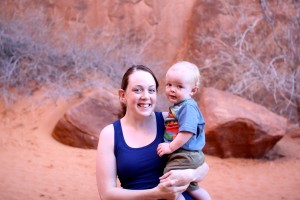
My husband and I anticipate our ordinations in the beginning of 2016. We have classes provided by the church to complete, and it’s not a process that needs to be rushed. Ultimately, he and I will be able to bless and pass Communion, the equivalent to Sacrament, together. In a few years, when our twins are eight years old, we can each lead one of them into the waters of baptism- side by side. We will be working in the congregation- side by side- making sure the needs of the people are being met. Building mission and ministry together, our daughters -as well as our son, will see a model of both parents participating in every opportunity that comes their way. Our children will never know the feelings I had as a young girl: yearning to see women serving in priesthood leadership capacities. Community of Christ actively adds to the Doctrine and Covenants, and it is likely that they will be around when scripture is written by a woman- a future President of the church.
Ordaining women has deeply enriched Community of Christ. Women participate in every governing body of the church. We are key components at every level of decision making. As a church, we wouldn’t be who we are without the fully functioning leadership of women. I am both humbled and grateful to be joining the women of the restoration who have been called to this sacred sense of trust and ministry.
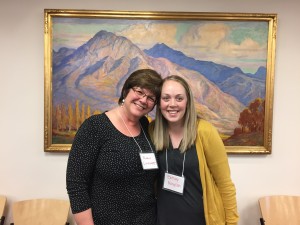
Brittany is with Robin Linkhart–the pastor/president of seventy who called her and who will be ordaining her.






